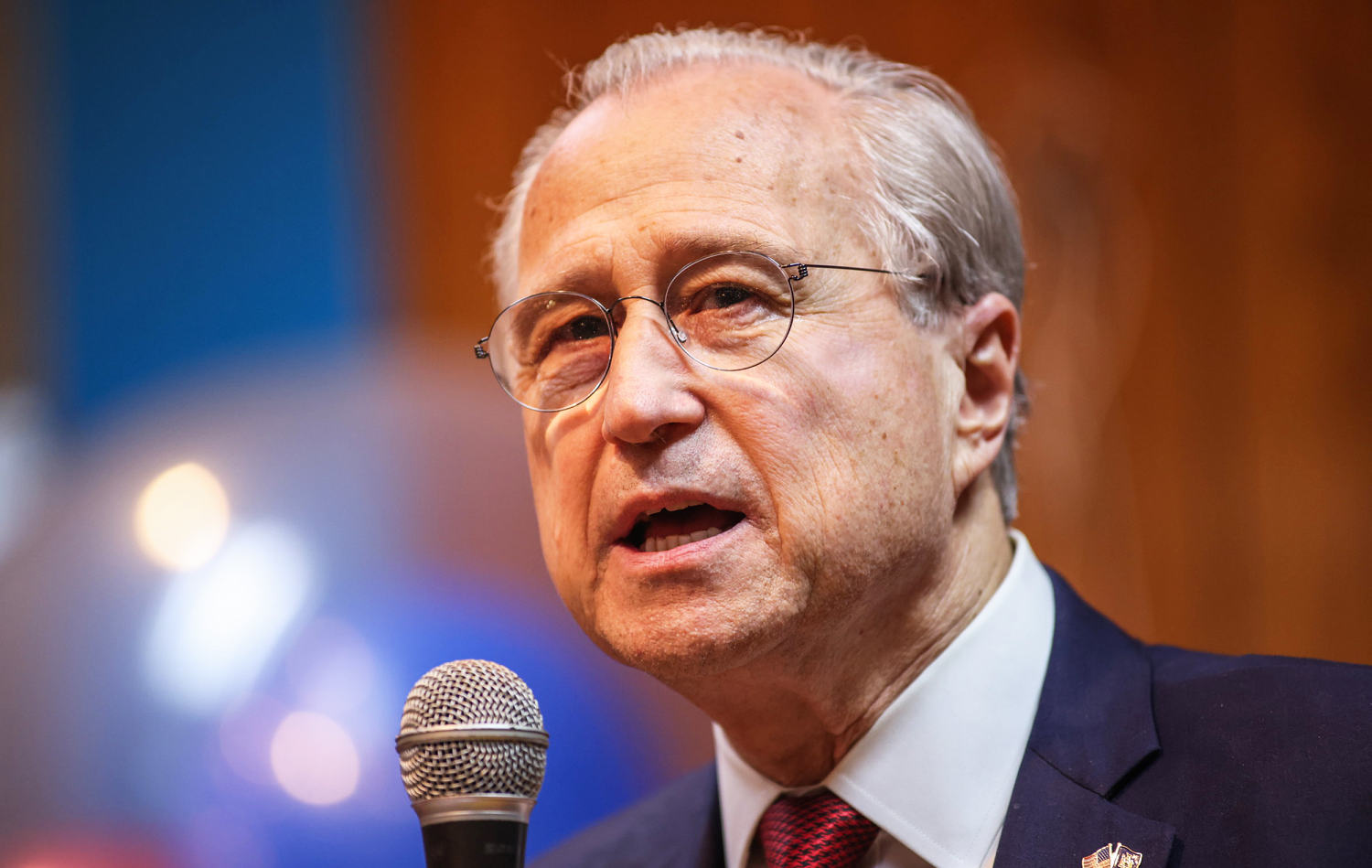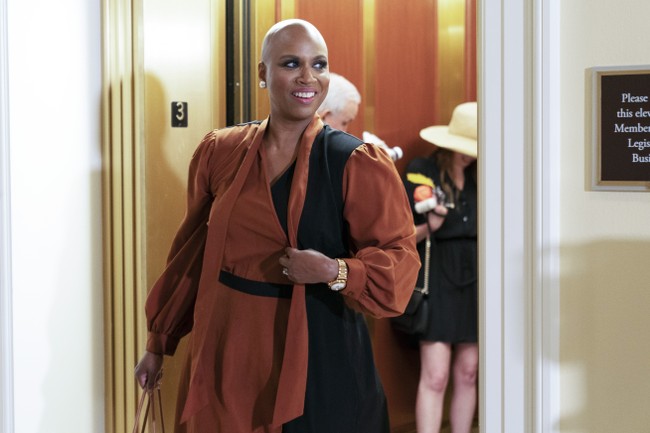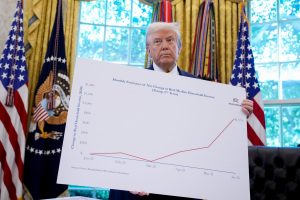In a 1981 speech to the boards of the World Bank and International Monetary Fund, President Ronald Reagan expressed one of the central ideas of the coming era. “The societies which have achieved the most spectacular, broad-based economic progress … believe in the magic of the marketplace.” I have long thought that this and many other Reagan speeches were extraordinary examples of what Michael Sandel has called public philosophy—an attempt “to bring moral and political philosophy to bear on contemporary public discourse.”The Reagan public philosophy presented a certain vision of political economy, of the relationship between markets and government. Freedom and liberty would be achieved through markets, so privatization of public functions was essential. Efficiency, growth, and prosperity required government to get out of the way of private actors, so deregulation was advised. The magic of the marketplace would ensure essential goods and services to all, so public spending was unnecessary—tax cuts and austerity dominated. As public philosophers, Reagan and his compatriots were wildly successful: They not only reshaped American political discourse but fundamentally changed both parties’ approach to political economy. It was, after all, Bill Clinton who said “the era of big government is over,” deregulated finance and telecoms, and continued the privatization agenda.We are now in the midst of a total rethinking of the Reaganite political economy. Republican Senator Marco Rubio has recently questioned the “25-year orthodoxy in the Republican Party centered around market fundamentalism,” telling The New Yorker that “sometimes the most efficient outcome isn’t the best one for the country.” Rubio has declared that markets should serve human values, called for a reassertion of the common good over market ideology, and explicitly demanded that the United States adopt an industrial policy to further the national interest. At the same time, liberals and the left are advancing a new political economy that encourages the government to shape markets more actively, with an eye toward who has power, how it is exercised, and whether it enhances freedom and equality.This reassessment is one of the most important political developments today, even if it often feels more suited to a college seminar than the halls of Congress. The last few months have seen the passage of the American Rescue Plan—with its break from 1990s welfare reform and its bold action on child poverty—as well as Republicans’ willingness to embrace direct payments, best exemplified by Senator Mitt Romney’s proposal for a universal child allowance. These breaks from the past are the most acute examples of a much broader shift at work. In arenas that don’t tend to see such swift action—antitrust, industrial policy, trade, and international economics—a number of recent books, essays, and political initiatives are challenging the received wisdom. If it holds, the emerging political economy will shape the thinking of a whole generation of policymakers, just as the magic of the market formed the paradigm for the Age of Reagan.The field of antitrust has undergone perhaps the most striking transformation. Five years ago, few were talking much about antitrust law and policy. The field remained in the shadow of Robert Bork, whose approach focused on efficiency and lowering consumer prices—and led to weak enforcement. In March 2019, when Senator Elizabeth Warren announced her plan to break up big tech companies, critics assured her that she didn’t know what she was talking about, and that competition was “not a virtue” in itself. (Disclosure: I was formerly an adviser to Warren.) How things have changed. In the last two years, a slew of books have described the dangers of monopoly power and called for change: David Dayen’s Monopolized, Zephyr Teachout’s Break ’Em Up, Barry Lynn’s Liberty From All Masters, Sally Hubbard’s Monopolies Suck, Tim Wu’s The Curse of Bigness, and Matt Stoller’s Goliath.Just two years since Warren’s plan, the antitrust establishment has largely moved into her camp. The Department of Justice and several states are suing Google for anti-competitive behavior and calling for “structural relief” (in ordinary language: breakups). The Federal Trade Commission and almost every state are suing Facebook and calling for the same thing. The House of Representatives’ Subcommittee on Antitrust has scrutinized competition in digital markets. Nor are these partisan actions. It was the Trump Justice Department that brought the suit against Google. State attorneys general of both parties are involved in lawsuits. On any given day, one can find Senator Josh Hawley and Representative Ken Buck railing against big tech monopolies.A new book by Minnesota Senator Amy Klobuchar, considered one of the more centrist candidates for the Democratic presidential nomination last year, indicates just how much has changed. Senators rarely write books, and when they do, they tend to be political memoirs. But Klobuchar’s Antitrust: Taking on Monopoly Power From the Gilded Age to the Digital Age is a serious and important contribution that will help build momentum for reform. Stories from nineteenth-century Minnesota illustrate the harsh realities of monopoly capitalism: Klobuchar’s great-grandfather emigrated from Slovenia in the 1880s to work in the Iron Range mines in the far north of the state. Immigrant laborers fueled the railroad boom, and many died young—orphaning their children, who entered the mines, too. The railroads made robber barons rich and powerful. Minnesota’s own James J. Hill built a 36,000-square-foot mansion in St. Paul. As firms consolidated into the railroad, steel, oil, and sugar trusts, they gained a worrying degree of power over workers, other firms, and even over government. The Sherman Antitrust Act of 1890 and the Clayton and Federal Trade Commission Acts, both passed in 1914, were designed to break up these megacorporations and ensure competitive markets.For many decades, Klobuchar notes, antitrust enforcement successfully regulated some of the most powerful businesses in the country. She weaves memoir into her opening chapters, recalling her early career as an antitrust lawyer in the aftermath of the AT&T breakup in the mid-1980s. But the Reagan administration “dismantled and defunded” antitrust efforts. Relaxing the standards for mergers, it challenged only 33 mergers out of 11,547 between 1982 and 1987. It cut staff from the FTC. It even canceled a program that collected information on business lines and market activity. A generation later, Klobuchar sees a renewed threat in today’s monopolies. In many sectors, including tech, health care, and agriculture, consolidation means that a small number of companies dominate. “One- or two- or three-company control of major industries or technology platforms,” she writes, “is unacceptable.”Antitrust is primarily a policy book, and Klobuchar spends much of it offering 25 recommendations to increase competition. These range from the very broad (“Take on the Big Tech Companies”) to the extremely specific (“Change the Legal Standard for Predatory Pricing Claims”) to the practical (“Increase Antitrust Enforcement Staff”). Throughout, she references her own proposed legislation on the topic. And as Klobuchar is chair of the Judiciary Committee’s subcommittee on competition policy, antitrust, and consumer rights, her proposals are likely to be one of the starting points for reform.Industrial policy may have been an even more neglected area than antitrust in recent decades. For years, it seemed that merely whispering the words “industrial policy” at a Washington cocktail party would lead to ostracism so complete that Hester Prynne would have felt beloved. The thinking was that government should act only to solve market failures; that government should be run like a business; and that governments couldn’t—and shouldn’t—invest in or subsidize specific sectors or companies, because only the market is qualified to pick “winners.” Attitudes on this are also changing. There is a growing recognition that government invariably shapes the economy, and that it must. Policy determines every part of how markets work—if government abandons the field, that is a policy choice, too.This recognition, again, comes from both sides of the aisle. Rubio has explicitly called for the United States to formulate an active industrial policy, in part to compete with China and in part to address crises like Covid-19, which has shown how badly the United States needs to be able to produce its own medical supplies and protective equipment. A number of conservative intellectuals, in the magazine American Affairs and think tank American Compass, have chimed in with proposals. President Joe Biden’s Build Back Better plan and his commitment to an infrastructure bill are the biggest signals of change. Biden has already ordered reviews of supply chains in defense, transportation, public health, agriculture, technology, and energy—both to boost manufacturing jobs and to avoid future shortages of critical materials. Meanwhile an infrastructure bill could include trillions of dollars of spending—not only on roads and bridges, but also on clean energy.In her new book, Mission Economy: A Moonshot Guide to Changing Capitalism, Mariana Mazzucato makes the case for government investments and their unexpected and transformative effects. An economics professor at University College London, Mazzucato argues that the Reaganite approach to capitalism prevents the next big moon shot—the kind of project so ambitious that only a government can launch it, and whose benefits ripple through the rest of society and the economy.Mazzucato uses the Apollo moon shot as an extended case study of “mission thinking”—that is, of picking a goal and committing whatever resources it takes to achieve it. The government invested heavily in sending a man to the moon: The NASA budget from 1960 to 1973 was $56.6 billion, or $326.8 billion in 2020 dollars; it is difficult to imagine belt-tightening, austerity-driven politicians in the long Reagan Era taking on such a bold and pricey effort.These investments delivered much more than the initial goal. They resulted in dozens of spillover products, industries, and processes that President Kennedy could never have foreseen when he pledged to send a man to the moon. Major investments in semiconductors and software engineering transformed technology, leading to modern computing. Meanwhile, NASA’s work required inventing materials that could function in space, eventually leading to consumer products like Teflon and CorningWare. The mission-driven approach inspired and motivated people to support something bigger than their narrow self-interest. “The appeal of working for a government agency,” Mazzucato writes, “was that it was not only purpose-driven but also explicitly welcomed risk-taking in the process.” Government had to innovate in order to get to the moon, and that meant trial and error. It is not surprising, then, that young people were excited about the endeavor: The average age of staff at Mission Control during the Apollo 11 moon landing was an astonishing 26 years.Policymakers in the late twentieth century began to worship “the trade god,” Clyde Prestowitz writes in his new book, The World Turned Upside Down: America, China, and the Struggle for Global Leadership. What he means is that international economic policy focused single-mindedly on lowering trade and investment barriers. Commentators and policymakers celebrated the go-go era of globalization, assuming that all good things would go together—free trade, economic growth, national prosperity, human rights, and liberal democracy. But as Prestowitz argues, they were wrong.That view is gaining traction. With the failure of the Trans-Pacific Partnership agreement during the Obama administration and the start of President Trump’s trade war a year later, the decades-long consensus on trade liberalization has come under increasing attack. Globalization boosters assumed that though some people would lose their jobs to free trade, they would soon find new work. But as David Autor, David Dorn, and Gordon Hanson’s recent paper, “The China Shock,” has shown, some regions of the United States were hit so hard with factory closures and layoffs after China entered the World Trade Organization that, even a decade later, they hadn’t improved economically. It is not much help that trade deals have made cheap foreign goods available to U.S. consumers. “It is nice to save a few dollars when buying shoes or a washing machine,” Prestowitz writes. “But that pleasure does not equal the intensity of the complete loss of a job, or of a school system in a factory town when the factory closes.”Prestowitz bemoans the way liberalization has dampened America’s economic prowess. Since the time of Alexander Hamilton, the United States has used high tariffs to encourage domestic manufacturing; spent public funds on infrastructure; subsidized industries that were essential to economic growth or national security; and invested in public education to foster an educated, innovative workforce. This package of activities constituted an industrial policy. But decades of neoliberal trade policy essentially saw industrial policy dissolve. Supply chains have been offshored, leaving the United States vulnerable to shortages of protective equipment and ventilators during the pandemic. Essential technologies, like semiconductors, are now increasingly manufactured overseas.The challenges to the American economy are only half of Prestowitz’s subject. The other half is the rise of China. When the foreign policy establishment thought that free trade and globalization would spread liberal democracy, they included China. But this hasn’t happened. Instead of becoming more liberal or democratic as it gained in economic strength, China has remained authoritarian, and has increasingly wielded its economic and political power globally with sticks and carrots. On the one hand, China has pressured companies and individuals to stifle their opinions (recall the firestorm that took place when a manager of the Houston Rockets tweeted support for protesters in Hong Kong). On the other, it has undertaken efforts to help countries out and bring them into its sphere of influence, by investing in infrastructure around the world and, now, exporting millions of doses of Covid vaccines. Economic power is political power, and China has not been afraid to use it to advance its values and develop global relationships.The principled pursuit of free trade above all else does not account for this more hardheaded reality, which is one of the reasons why views seem to be changing. Today, competition from China is pushing both Republicans and Democrats to rethink offshoring and invest in research and development at home. It will also likely lead them away from the neoliberal emphasis on liberalizing international economics and trade, and instead encourage a greater focus on deepening relationships with close democratic allies.The intellectual work in some of these areas is more developed than others, and the political uptake has been haphazard. But these efforts share some common themes: All of this work takes as a given that the government must act—and that the failure to act is itself an action. The emerging political economy abandons the myth of the independent marketplace, and it sees policy choices as inescapable. This work also comes at a time of global-sparked anxiety, and the needs of national security and competitiveness are therefore likely to be invoked more and more frequently as a way to increase pressure for domestic economic reforms.Each of these areas tackles the extraordinary inequalities within the United States—inequalities by race, class, and geography. Antitrust, industrial policy, and trade present fundamental choices—about who has power and who doesn’t, about how to invest and where. Each of these books is awake to the notion that those choices will affect the way the wealth is distributed through society; economic inequality is not a problem for someone else to solve through tax-and-transfer policies. Finally, and critically, the impetus behind the emerging political economy is largely structural, not technocratic. Advocates speak less of imperceptible nudges and tax credits and more of achieving specific goals, such as breaking up big tech, “Buy American” programs, and getting to 100 percent clean energy. These are salient ideas, and they involve clear rules and massive investments.The simultaneous, sweeping rethinking of these sectors is a major event. Rarely do scholars and policy thinkers on both sides of the aisle fundamentally revise their paradigms in one arena, let alone so many all at once. This is itself exciting, and when combined with efforts among liberals and the left to invest in strengthening social infrastructure and in public goods, there is a real possibility that we might be in the midst of another “present at the creation” moment—a moment in which a new public philosophy is emerging, along with the policies to support it.
- Latest
- Trending


















